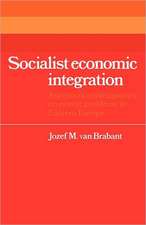Modern Macroeconomics: A Post-Keynesian Perspective: Routledge Library Editions: Macroeconomics
Autor Stanley Boberen Limba Engleză Paperback – 29 aug 2017
| Toate formatele și edițiile | Preț | Express |
|---|---|---|
| Paperback (1) | 353.57 lei 6-8 săpt. | |
| Taylor & Francis – 29 aug 2017 | 353.57 lei 6-8 săpt. | |
| Hardback (1) | 1003.43 lei 6-8 săpt. | |
| Taylor & Francis – 15 sep 2015 | 1003.43 lei 6-8 săpt. |
Preț: 353.57 lei
Nou
Puncte Express: 530
Preț estimativ în valută:
67.66€ • 70.82$ • 56.31£
67.66€ • 70.82$ • 56.31£
Carte tipărită la comandă
Livrare economică 31 martie-14 aprilie
Preluare comenzi: 021 569.72.76
Specificații
ISBN-13: 9781138936355
ISBN-10: 1138936359
Pagini: 290
Dimensiuni: 156 x 234 x 18 mm
Greutate: 0.39 kg
Ediția:1
Editura: Taylor & Francis
Colecția Routledge
Seria Routledge Library Editions: Macroeconomics
Locul publicării:Oxford, United Kingdom
ISBN-10: 1138936359
Pagini: 290
Dimensiuni: 156 x 234 x 18 mm
Greutate: 0.39 kg
Ediția:1
Editura: Taylor & Francis
Colecția Routledge
Seria Routledge Library Editions: Macroeconomics
Locul publicării:Oxford, United Kingdom
Public țintă
General, Postgraduate, Professional, and UndergraduateCuprins
1. Preliminary Observations 2. The Ricardian System 3. The Marxian System 4. The Sraffian System 5. A Basic Growth Model 6. A Question of the Capital and the Production Function 7. Reswitching of Techniques 8. Wicksell Effects and Distribution 9. An Alternative Setting 10. A Further Understanding 11. An Overview
Descriere
Originally published in 1988, this book combines a systematic exposition of post-Keynesianism analysis with an account of its historical development. The role of major figures like Keynes and Sraffa in the development of the theory is closely detailed but the book also gives equal emphasis to Kaldor and the neglected Italian school. The theoretical implications of post-Keynesianism are outlined and challenging arguments for its importance are presented.


























